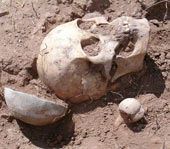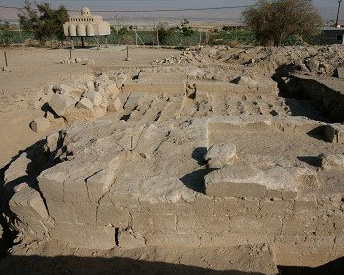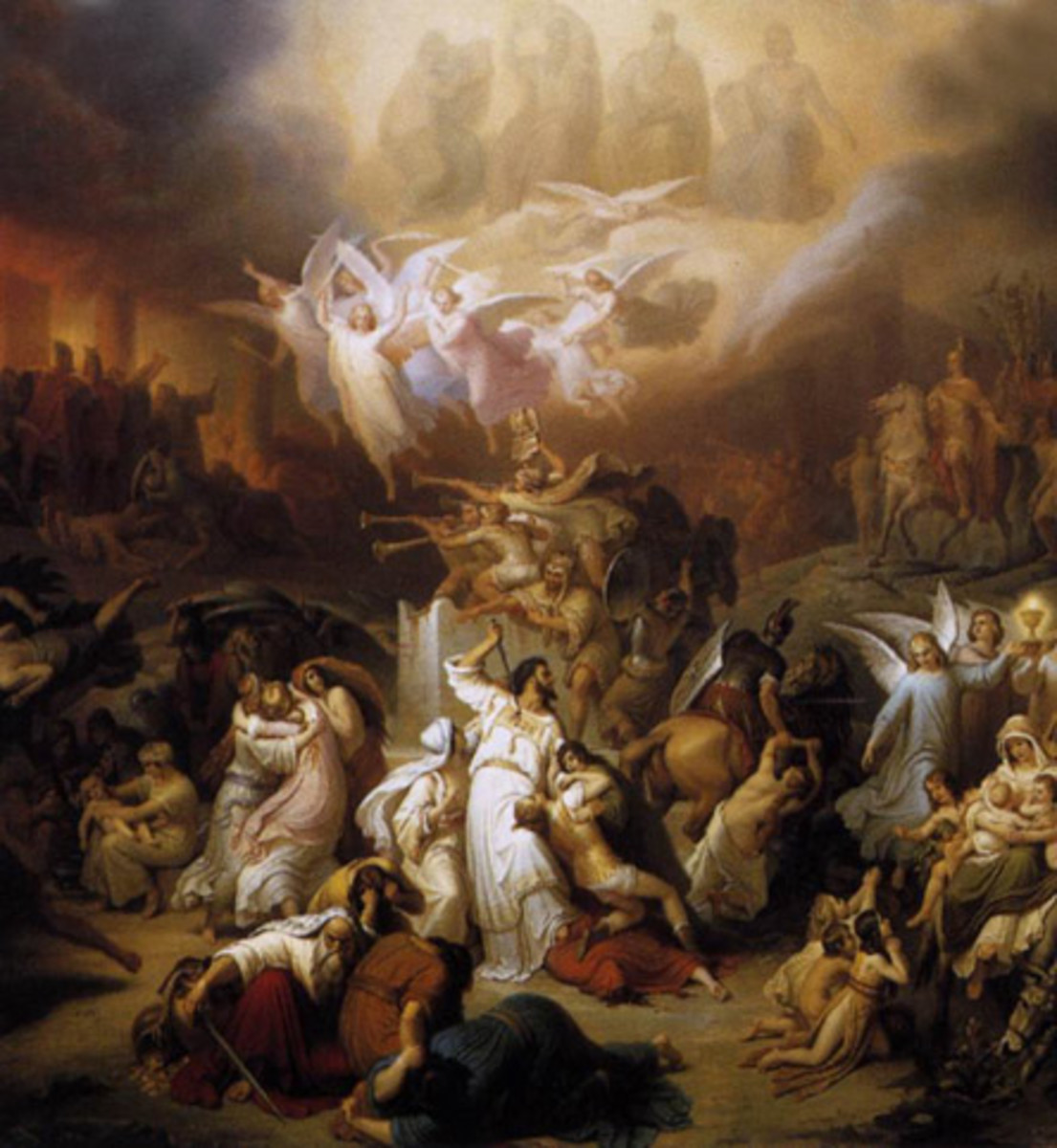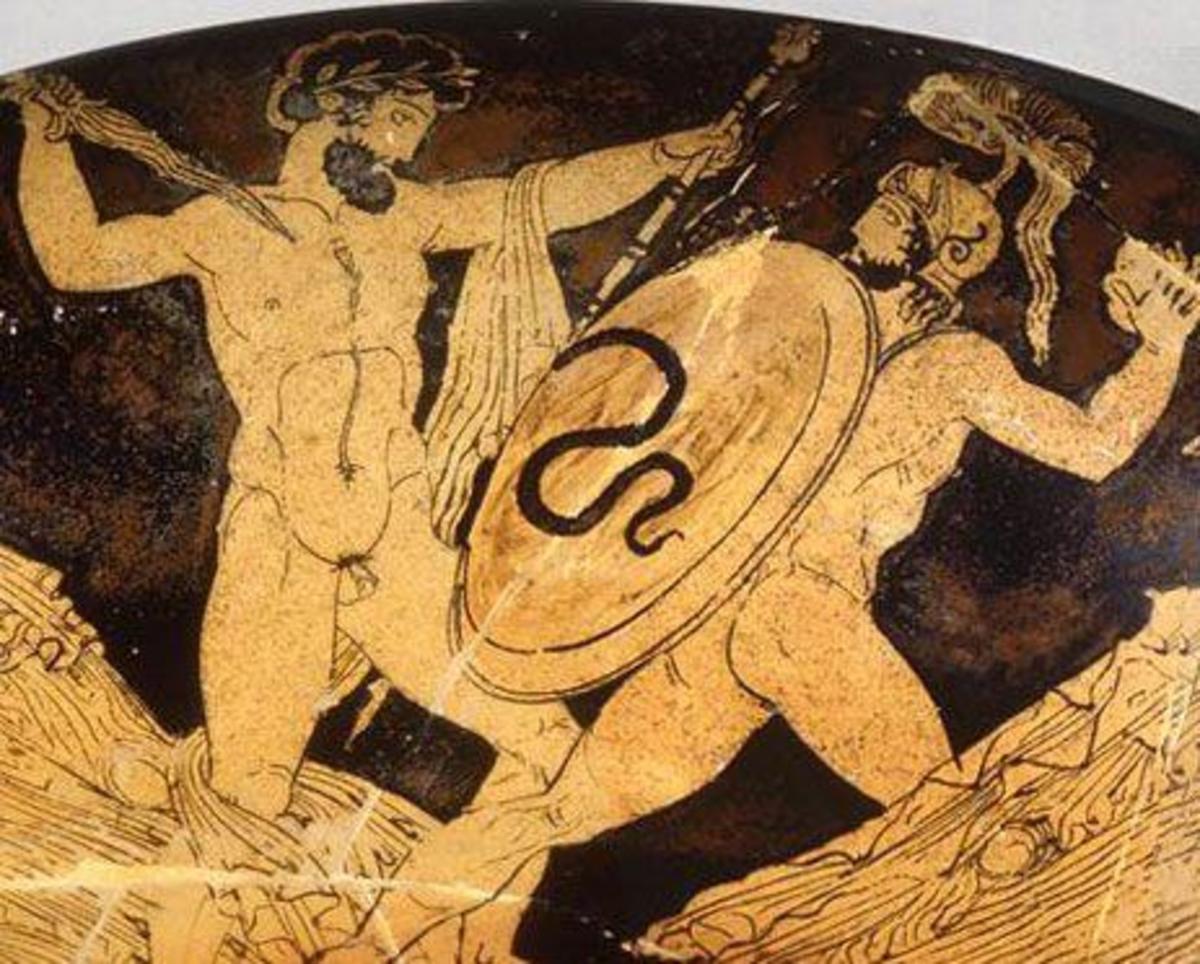Joshua and the War Crime of Jericho


Priests and preachers hold up the story of Joshua leading the Chosen People into the Promised Land as one of courage and the benefit of putting faith in God, but what when this story is looked at from the other perspective, from that of the people living in the city of Jericho.
Archaeologists studying the ruins of this ancient city have made some remarkable discoveries. Dating back to 9,000 BC, Neolithic hunters occupied the area. Evidence from one thousand years later reveals the beginning of an organised community populated by an estimated 2,000-3,000 people. Archaeological evidence shows the existence of a protective wall with at least one defensive tower, though in this era such barriers were commonly constructed to protect against predatory wild animals. In no way do these remnants equate to the commonly illustrated scriptural description of a city surrounded by a high stonewall with crenelated battlements and many defensive towers.
What cannot be denied is that settlement in the area of Jericho dates back to at least 8,000 years BC and probably further. In addition, evidence that several varieties of wheat and barley grains were in use makes this one of the earliest proven locations for human agricultural development.
By the time Joshua arrived, Jericho was a long established community. There would be farms in the surrounding countryside and trade routes to neighbouring settlements. The internal infrastructure would consist of markets, taverns, restaurants, blacksmiths, carpenter’s workshops, temples, in fact every element any established community might require to function.
Then along came Joshua and the Chosen People entering, according to scripture, the Promised Land.
Joshua is therefore an invader entering a land already occupied by a long established civilisation and, according to scripture; Jericho is the first city they encounter.
Do they, for example, enter as an immigrant people willing to settle and share the land? The scriptural account tells that Joshua sent spies into the city. No mention is made of sending an emissary to negotiate a peaceful integration of their peoples. This was an invasion. Nor is there any mention of what happened when Joshua encountered the surrounding farms and villages, which would have existed because they do around every established city to provide food and grain and wheat and other consumables. It can be assumed that the residents of these suffered the same fate as did the people of Jericho.
Joshua and his people arrive at Jericho (Joshua 6) and the city is described as, shut up. What city in similar circumstances would not take the same measures? Does Joshua negotiate? Does he send emissaries? No! Joshua is commanded by his God, the God of Moses and Abraham, a God that claims to be loving, kind, merciful, to attack the city and devote everything in it to destruction.
The means by which this occurred can be taken as read. Whether the city walls existed as described and whether these fell down after Joshua’s army marched around six times is irrelevant. Joshua led an invading army into an attack on people living in a long established city, a people who, according to scripture, had done Joshua and his people no harm whatsoever.
There is a simple phrase used in a number of biblical translations. This phrase is, devoted to destruction. It is like the phrase like, collateral damage, as used in modern warfare. Collateral damage refers in part to the killing of innocent civilians who just happen to get in the way, though modern armies try to avoid collateral damage. The innocent civilians living in Jericho weren’t killed as collateral damage. They were deliberately targeted.
Killing any soldiers or armed men trying to defend the city can be justified, but Joshua didn’t just kill those. They set about killing everyone and destroying everything in the city! They hacked down women and children. They killed the old and the sick and the defenceless where they lay. Pregnant women were kicked to the ground and speared through. Babies in their cots were picked up by their legs and hacked apart with a sword. Infants and toddlers, running and screaming in terror were chased and cut down for sport. Everyone who lived in the city of Jericho was butchered. Blood ran in the gutters and those who did the killing would stride about drenched in the blood of those they’d slaughtered as they stripped the bodies of gold, jewels and whatever else of value they could find.
This is what the term, devoted to destruction, really means. All because Joshua’s God, the God of Moses and Abraham, a God who claims to be loving, kind and merciful commanded that the city be devoted to destruction, all but anything of real value. This was to be kept to the glory of the God who commanded such slaughter.
If such an event occurred today, it would be described as ethnic cleansing. It is the extermination of a complete people. It was a merciless slaughter of men, women and children, a bloodbath involving tens of thousands of innocent civilians who were not even given a chance to convert to the worship of Joshua’s God.
If such an event occurred today, Joshua would be put on trial as a war criminal. Can anyone argue that Joshua’s action was justified? Can anyone justify the slaughter of defenceless women and children or the killing of the sick and the lame? Yet preachers stand up in church and hail this story as an example of Joshua’s obedience to God. The defence used by Concentration Camp guards during the Nazi war crimes trials, that they were just following orders, was summarily rejected. Those following orders were just as guilty as those giving the orders.
The Battle of Jericho should not be hailed as an example of the victory of good over evil, but a victory of evil over good. Joshua should not be hailed as a hero, but as a merciless war criminal. As for Joshua’s God, the God of Moses and Abraham, can a God who ordered such an act be described as truly merciful and kind?
The story of Adam and Eve is a story involving judgement. In taking fruit from the Tree of Knowledge, Adam and Eve claimed the right to judge for themselves. Is it any wonder this same God tried to forbid mankind that right?






